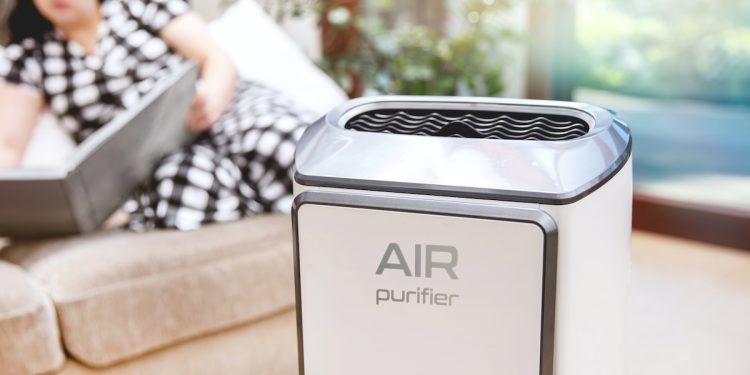Improve Indoor Air Quality: Do Air Purifiers Help with Mold?
When it comes to maintaining a healthy indoor environment, especially in commercial spaces, air quality is essential. Mold is a common concern for many businesses, particularly in areas like Glendale, Peoria, Sun City, and Surprise, AZ, where the climate can sometimes create conditions that encourage mold growth. But how do you deal with mold in your indoor air? A question we often hear is: Do air purifiers help with mold? The answer is yes, they can play an important role in improving indoor air quality and reducing the presence of mold spores in the air. Let’s dive into how air purifiers work and whether they’re an effective solution for mold in your business.
Understanding Mold in Indoor Spaces
Mold thrives in moist environments, and once it finds its way into your commercial space, it can spread quickly if not addressed. Mold can grow on various surfaces, such as walls, ceilings, carpets, and HVAC systems. When mold grows, it releases tiny spores into the air that can affect the health of anyone who breathes them in. These spores can cause respiratory issues, trigger allergies, and worsen conditions like asthma. For businesses, mold not only poses a health risk but can also lead to property damage and legal concerns if left untreated.
So, how can you tackle mold in your indoor air? That’s where air purifiers come into play.
How Do Air Purifiers Help with Mold?
Air purifiers are designed to clean the air by capturing and removing pollutants, including mold spores, from your indoor environment. But to answer the question: Do air purifiers help with mold? It’s important to understand how they work and the type of air purifier you choose.
Most air purifiers use a combination of filters and technologies to remove airborne contaminants. The key to combating mold is choosing a purifier with a HEPA (High-Efficiency Particulate Air) filter, which is highly effective at capturing particles as small as mold spores. HEPA filters can trap up to 99.97% of airborne particles, including mold, dust, pollen, and other allergens, making them an excellent solution for improving air quality in commercial spaces.
In addition to HEPA filters, some air purifiers come equipped with UV-C light technology, which can help destroy mold spores rather than just capturing them. UV-C light damages the DNA of mold spores, rendering them unable to reproduce, which further helps prevent mold from spreading.
Benefits of Air Purifiers in Commercial Spaces
For businesses in Glendale, Peoria, and surrounding areas keeping a clean and healthy indoor environment is crucial not only for the well-being of employees but also for customers and visitors. Here are some of the top benefits of using air purifiers to manage mold and improve indoor air quality in commercial spaces:
1. Reduced Health Risks
Mold spores in the air can cause a variety of health problems, including respiratory issues, allergic reactions, and eye or throat irritation. For businesses like restaurants, retail stores, healthcare facilities, or offices, ensuring clean air can help reduce the risk of mold-related health problems for both employees and customers.
2. Preventing Mold Growth
While air purifiers can’t eliminate mold that’s already growing on surfaces, they can significantly reduce the number of airborne mold spores. This helps prevent the spread of mold and reduces the chances of mold taking root in new areas of your building. Paired with regular cleaning and proper humidity control, air purifiers can be a vital part of your mold prevention strategy.
3. Odor Control
Mold not only impacts air quality but can also cause unpleasant, musty odors. A good air purifier can help reduce these odors by removing airborne mold spores and other contaminants that contribute to the smell. This is especially important in commercial spaces like hotels, gyms, or office buildings, where a clean and fresh environment is crucial for creating a positive experience for clients and employees.
4. Enhanced HVAC System Efficiency
Air purifiers can also work in tandem with your HVAC system to enhance overall air quality. By filtering out mold spores and other particles, you’re reducing the burden on your HVAC system’s filters, allowing it to function more efficiently. This can result in better energy efficiency and potentially extend the life of your HVAC system, which is important for maintaining comfort and reducing costs in commercial spaces.
What Air Purifiers Can’t Do
While air purifiers are an effective tool for reducing airborne mold spores, they are not a complete solution for mold problems. Air purifiers do not eliminate mold growing on surfaces like walls, carpets, or inside ductwork. To completely remove mold, professional mold remediation and regular cleaning are necessary. Additionally, controlling moisture levels in your building is critical because mold thrives in humid environments. Using dehumidifiers or maintaining proper ventilation can also help prevent mold growth.
Air Purifiers Help, but a Comprehensive Approach is Key
So, do air purifiers help with mold? Absolutely. Air purifiers with HEPA filters and UV-C light technology are highly effective at removing mold spores from the air, which can improve indoor air quality and reduce health risks in your commercial space. However, they should be part of a broader strategy that includes controlling moisture, regular cleaning, and, if necessary, professional mold remediation to tackle mold at its source.
If you’re concerned about the air quality in your business or looking for ways to address mold in Glendale, Peoria, Sun City, Surprise, or the surrounding areas, upgrading to a high-quality air purifier is a great first step. For expert advice and reliable HVAC services, Gotham Air is here to help. We provide top-tier solutions for maintaining clean, healthy indoor environments in commercial spaces. Reach out to us today for more information!














